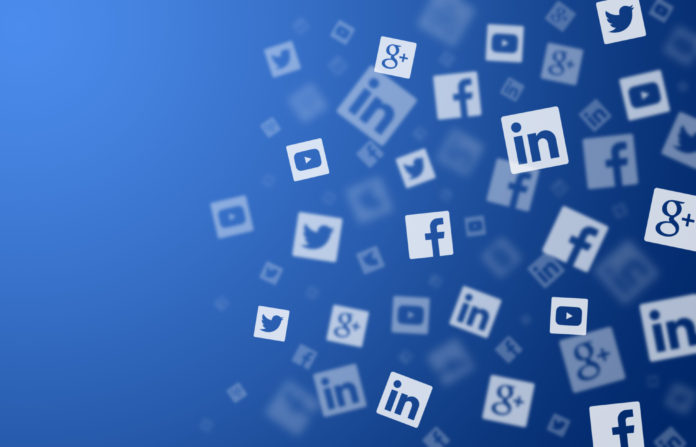If you have been paying attention to the news lately then you have probably heard of the PR nightmares that some companies have been having. It’s not that these firms are in the same industry. They serve in everything from the tech industry to the transport industry. What they do have in common is that these nightmares were started and propelled by social media sites that most of us are familiar with- Facebook, Twitter, and YouTube.
As time goes by, people are looking for ways to connect with each other, and there’s no better way to do that than to join any one of these online communities. For businesses, social media is also the way to go. After all, all of their customers are using them, so they have to as well. How else would they do their advertising and marketing otherwise? But even as businesspeople realize the potential in online marketing, they’re also getting the brunt of the worst of social media.
Social Media Storms
Remember Uber? Well, it was one of the first companies to go through the sort of social media that is described here. In 2016 the Uber CEO was caught on camera having an argument with one of the firm’s employees. The video showing the confrontation between the company head and the Uber driver hit social media, and soon everybody was clamoring about it. Even people who had probably never used the company’s services before were out for blood. They wanted to know why this tech magnate was ‘harassing’ his employee. Others chose to come up with theories about the argument, ideas that were accepted as truth in the online community hours and days before the company explained the altercation and the CEO apologized for it. The Uber CEO was forced to resign soon after.
Just this year, social media was again at the helm of beating Uber. This time not about an argument but about some of the alleged business practices of the firm. Keyboard warriors from across the globe enjoyed the social media storm, taking the opportunity to openly speculate about the company’s top executives leaving one after the other. As if that wasn’t bad enough, reports in early April that the company was discriminatory were scrutinized and analyzed by the online judge and jury. And Uber is not the only company to suffer.
Over the past few weeks, two airline companies have been under the glare of social media personas as well. The first of these is the infamous United Continental Airlines. This airline has suffered through many scandals in the space of three months that it’s just ludicrous. When it wasn’t the legging incident, it was the forceful removal of a passenger that ended up costing the company funds in the form of settlements. Weeks after those two incidences, when you had forgotten about them, United Airlines was once more linked to another scandal, this time for making a family disembark for purportedly speaking against overbooking. And what’s more, it was all caught on camera and is eternally living on the internet.
To be fair, these are not the only companies which have suffered because of social media. There are dozens of others, and these are here just to prove a point. Technology and social media are the new worlds, and it’s time companies caught up. Sure, they have caught on when it comes to the good in social media, but have they adjusted their policies to deal with the negatives?
Up your policies
Social media nowadays is what gives people their first impression of you. Nowadays, even before you step into an interview room, employers have likely scoured through your social media accounts to find out what sort of person you are. The same goes for the interviewer. Today talent searches for corporations that they feel comfortable in. If your company profile has taken a big hit on social media, will people take the time to sign up to work for you?
One way that companies can deal with social media is to assume that a PR social media storm has happened to them. What would the company do then? Let the corporation set a strategy to tackle such a storm. It could be anything from hiring tech savvy people to argue for the company during such storms or others to contain the spread of data to do with the company. These people can actively seek out what’s being said about the company and report on it so that any negative titbit is dealt with before it goes viral then there’s no containing it.
Another thing that companies could try is informing their companies about their policies. This could be physically through company agents or online. In the United Airlines leggings fiasco, the passengers were not allowed on the plane because of their type of ticket. If they knew they would be stopped for wearing what they did they probably would never have worn those outfits on the plane. Actively reminding your customers about your policies could save you a lot of bad press in future particularly those that are just caused by misunderstandings.
Similarly, what companies need to understand is that with social media it’s a prevention trumps cure situation. When a company is involved in a scandal, it should speak up as soon as it can. When you delay in clarifying a situation, then people on social media will clarify it for you. Similarly, anything is open to interpretation on social media. When giving statements on social media after a scandal like the CEO of United Airlines did, companies should try to minimize on statements that could be spun. If it’s an apology, make it brief and sincere. Long statements ad defenses will only hurt you if they are taken out of context.
Now, there must be other ways for companies to deal with today’s digital populace when it comes to scandals. These are only a few pointers. Dealing with scandals effectively could even help you up your share price. Take a look at the financial improvements that United and Delta Airlines have made if you don’t believe that.




